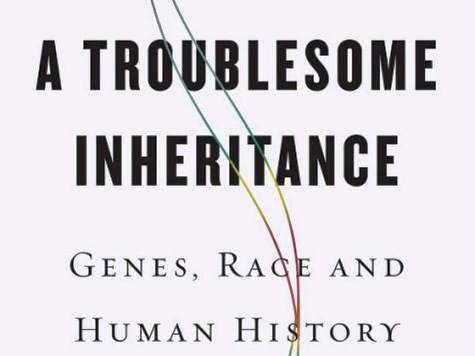A book claiming that genetics lies behind the rise of Western civilisation has been denounced as “racist” by some scientists.
A Troublesome Inheritance by science writer Nicholas Wade says that there is mounting evidence of genetic variations within humanity, and this these variations can have cultural and civilisational impacts, the Times reports.
Mr Wade, who wrote for the New York Times for 30 years before retiring two years ago, also says that human evolution continues to this day, rather than stopping shortly after stone age, as previously thought.
“New analyses of the human genome have established that human evolution has been recent, copious, and regional,” he writes.
Examples of this change include lactose intolerance and the ability to live at high altitudes or cold climates.
Although this part of the book has been relatively well received, his claims that there are genetic differences in terms of intelligence and behaviour, and that human history can be explained partly by genetics, have caused unease among some people.
For example, Wade says that evidence from surname records shows that rich, entrepreneurial Europeans out-bred less able citizens during the Middle Ages, thus ensuring that Europe became more creative than other parts of the world.
This eventually led to the Industrial Revolution, which laid the foundations for the modern world. “The rise of the West is an event not just in history but also in human evolution,” Wade writes.
Wade also writes that it was thanks to genetics that South Korea was able to heavily industrialise after the Second World War. He says that the genetic make-up of Koreans made them value hard-work, education, discipline and investment. Meanwhile, Ghana, which had a similar economy at the end of the Second World War, stagnated.
American statistician Andrew Gelman has denounced this part of the book as “racist”. Gelman said: “Wade does not characterise himself as a racist, writing, ‘no one has the right or reason to assert superiority over a person of a different race.’
“But I characterise his book as racist based on the dictionary definition: ‘a belief that race is the primary determinant of human traits and capacities and that racial differences produce an inherent superiority of a particular race’.
“Wade’s comments about creativity, intelligence, tribalism seem to represent views of superiority and inferiority.”
In a review for the Spectator, however, Ed West writes that objections to Wade’s theories are based more on political rather than scientific concerns.
He writes: “This book’s ideas are indeed fraught but beyond carefully explaining the dangers of misusing science, the consequences are not for scientists to ponder, but rather lawmakers and others of influence; they can choose either to consider the evidence and make things work as best as they can, using what knowledge we have, or they can continue to ignore the ticking of Darwin’s unexploded bomb, punishing anyone who raises the subject.”
However, Viscount Ridley, another science writer, says in today’s Times that genetic selection would be far too slow to explain the Industrial Revolution: “Yes, there would have been genetic change in European society as certain types of personality had more offspring. But surely this was not anywhere near fast enough and large enough an effect to spark the Industrial Revolution.”

COMMENTS
Please let us know if you're having issues with commenting.